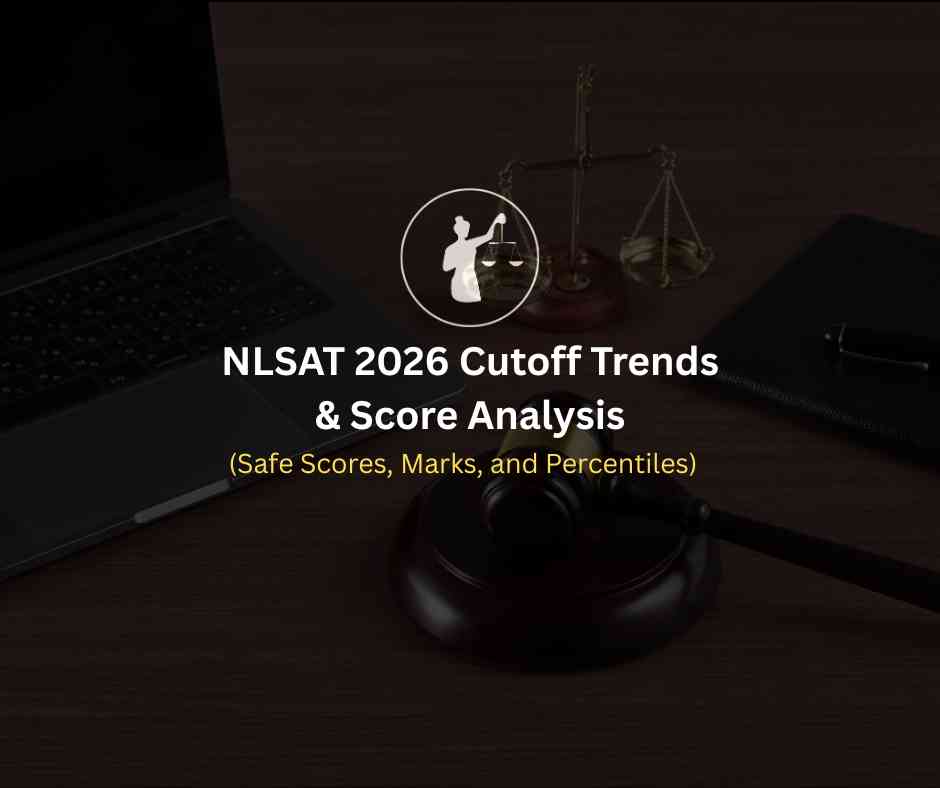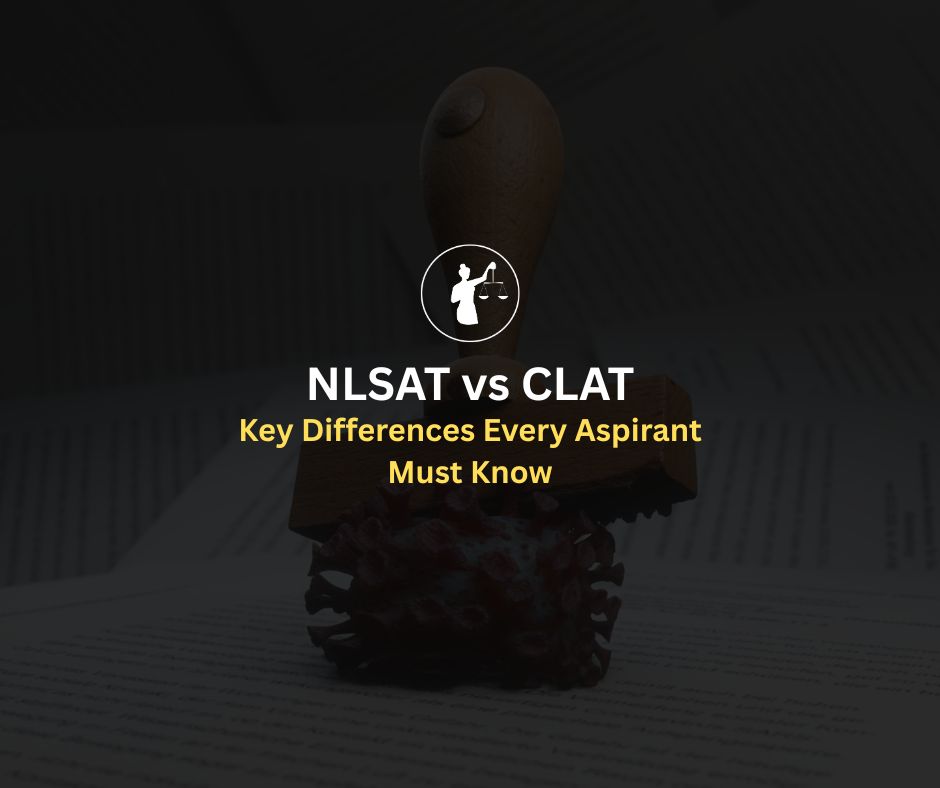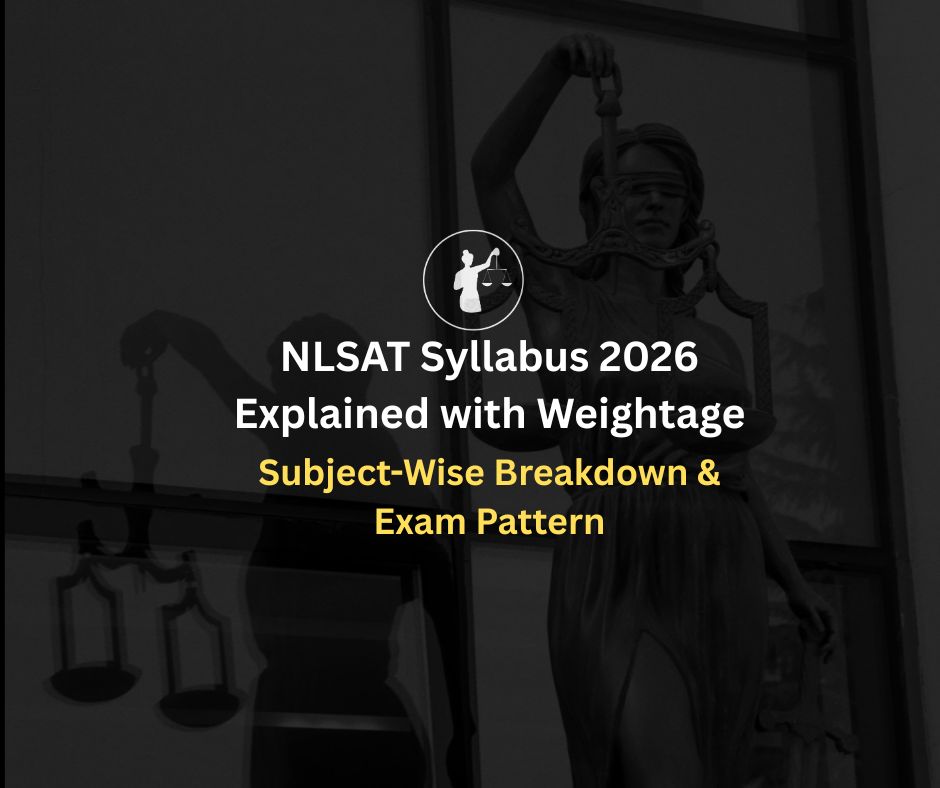
The National Law School Admission Test (NLSAT 2026), conducted by NLSIU Bengaluru, is one of the most competitive law entrance exams in India, offering just 120 seats in the 3-Year LL.B. (Hons.) program. With competition intensifying every year, knowing the NLSAT 2026 cutoff and understanding how NLSAT 2026 marks translate into percentiles is crucial for every aspirant.
This detailed guide from the National Legal Training Institute (NLTI) provides a comprehensive breakdown of NLSAT cutoffs, including previous year data, expected NLSAT 2025 cutoffs, and predicted NLSAT 2026 marks and cutoff trends.
Check Out NLSAT Online Coaching and Mentorship
The NLSAT 2026 cutoff is not just a number—it reflects the minimum marks required to secure admission to India’s top-ranked law school. Understanding cutoffs helps aspirants:
Estimate safe scores in both Part A (objective) and Part B (subjective).
Balance preparation between accuracy in reasoning and clarity in writing.
Identify category-wise targets for General, EWS, OBC, SC, and ST candidates.
Plan smarter using previous year cutoff data and projected NLSAT 2026 marks.
Here’s how the NLSAT cutoffs have revolved as of latest information:
Insight:
General cutoff = ~85–90 percentile = 65–70% of total marks (≈88–92/150).
Reserved cutoff = ~70–80 percentile = 55–60% of total marks (≈72–80/150).
Read More: Top NLSAT 2026 Preparation Books & Resources : Expert Study Guide
The NLSAT 2026 cutoff depends on several factors:
Percentile vs Marks
NLSIU officially releases percentile cutoffs.
Approximate marks-to-percentile mapping helps estimate safe scores.
Dual Weightage
Part A (Objective – 75 marks) + Part B (Subjective – 75 marks).
Balanced performance across both is essential.
Category-Wise Variation
General cutoffs are the highest.
Reserved categories benefit from lower thresholds and extended waiting lists.
Seat Intake
Only 120 seats total (including 25% reserved for Karnataka domicile).
Based on difficulty and previous trends, here’s NLTI’s projection:
Note: These are not official cutoffs. They reflect NLSAT 2025 marks estimates from NLTI’s analysis.
With rising applicants and tougher competition, the NLSAT 2026 cutoff is projected as follows:
Read More: NLSAT 2026: Decode Legal Terms & Conquer Tough Questions
Key Factors for NLSAT 2026 Cutoff Rise:
More applicants (10–15% increase expected).
Stronger Part B essays with complex legal themes.
Increased awareness of NLSAT strategy among test-takers.
Static seat intake (120 seats) despite rising competition.
To clear the NLSAT 2026 cutoff, target the following NLSAT 2026 marks:
General Category: 90+ out of 150 (safe zone).
Reserved Categories: 72–80 out of 150.
Part A: 55–60 marks (high accuracy in comprehension & reasoning).
Part B: 35+ marks (structured essays & legal reasoning).
Read More : Beginner’s Guide to NLSAT 2026 Preparation : Step-by-Step Strategy
Q1. What is the safe score for NLSAT 2026 (General Category)?
Aim for 90–92 marks out of 150 (≈85–90 percentile).
Q2. Does NLSIU release official cutoff marks?
No. Only ranks are published; NLSAT 2026 marks cutoffs are estimated from student data.
Q3. Are cutoffs the same for all categories?
No. Each category has its own NLSAT 2026 cutoff as per reservation norms.
Q4. How does difficulty level affect NLSAT 2026 cutoffs?
An easier paper pushes cutoffs higher; a tougher paper lowers them slightly.
Q5. What is the minimum score required to get Part B evaluated?
Candidates need to be in the top 1:5 ratio (Part A performance) about 45–50 marks in Part A.
The NLSAT 2026 cutoff is expected to remain in the 85–90 percentile range, which translates into a safe score of 90+ NLSAT 2026 marks for General candidates and 72–80 marks for reserved categories. With only 120 seats on offer, aspirants must plan strategically:
Maximise accuracy in Part A (Objective).
Write clear, analytical essays in Part B (Subjective).
Stay ahead with mock tests and cut-off analysis.
By setting your targets above the projected NLSAT 2026 cutoff marks, you give yourself the strongest chance to secure admission at NLSIU Bengaluru.





